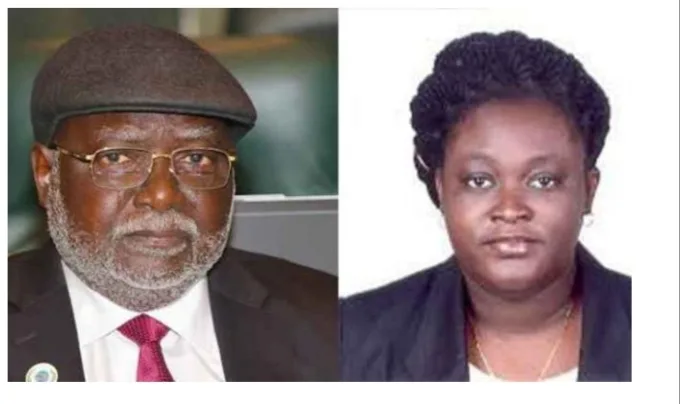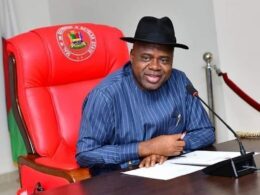Chief Judge of the Federal Capital Territory High Court, Husseini Baba-Yusuf, has nominated his daughter, Maryam Baba-Yusuf, as one of the newest judges in the system.
This decision has raised concerns about ethnic favouritism and nepotism within Nigeria’s judiciary.
According to an investigation by the Peoples Gazette, Justice Baba-Yusuf’s nomination of his daughter has exacerbated existing tensions within the legal elite, with accusations of turning the judiciary into a familial job network.

This nomination, akin to the controversial appointment of Oluwakemi Victoria Ariwoola, daughter-in-law of the Chief Justice of Nigeria, Kayode Ariwoola, has highlighted systemic issues within the Nigerian judiciary.
The appointment of Maryam Baba-Yusuf has also brought to light concerns regarding the violation of Nigeria’s federal character policy, which mandates equitable representation across the nation’s states and capital.
Notably, the nomination of Maryam Baba-Yusuf as the third judge from Kogi on the FCT High Court has raised eyebrows, particularly when states like Imo, Ebonyi, and others have no representation on the court.
Critics argue that instead of prioritizing ethnic and geopolitical balance, Chief Judge Baba-Yusuf appears to be favouring individuals from influential families, thereby sidelining senior magistrates from states not already represented on the court.
The decision has sparked outrage among judges and court clerks, with some expressing discontent with Chief Judge Baba-Yusuf’s leadership. Concerns have been raised about the erosion of trust in the judiciary and the potential undermining of the Nigerian Constitution.
While the Chief Judge’s office has declined to comment, citing the ongoing nomination process, the controversy surrounding Maryam Baba-Yusuf’s nomination underscores broader issues of transparency and fairness within Nigeria’s legal system.
Meanwhile, magistrates from states without representation on the FCT High Court, such as Imo, Ebonyi, Abia, and Bayelsa, are contemplating their next steps in response to what they perceive as an unjust oversight in the latest round of judicial appointments.
As the nomination process progresses, stakeholders are closely monitoring developments, with hopes for a resolution that upholds the principles of equity and justice within Nigeria’s judiciary.









Join our Channel...